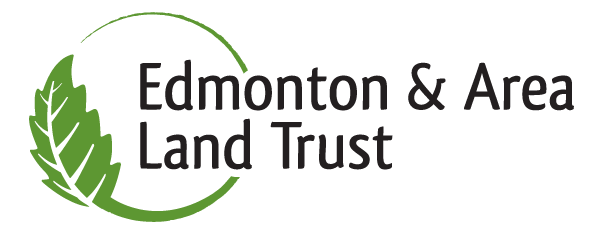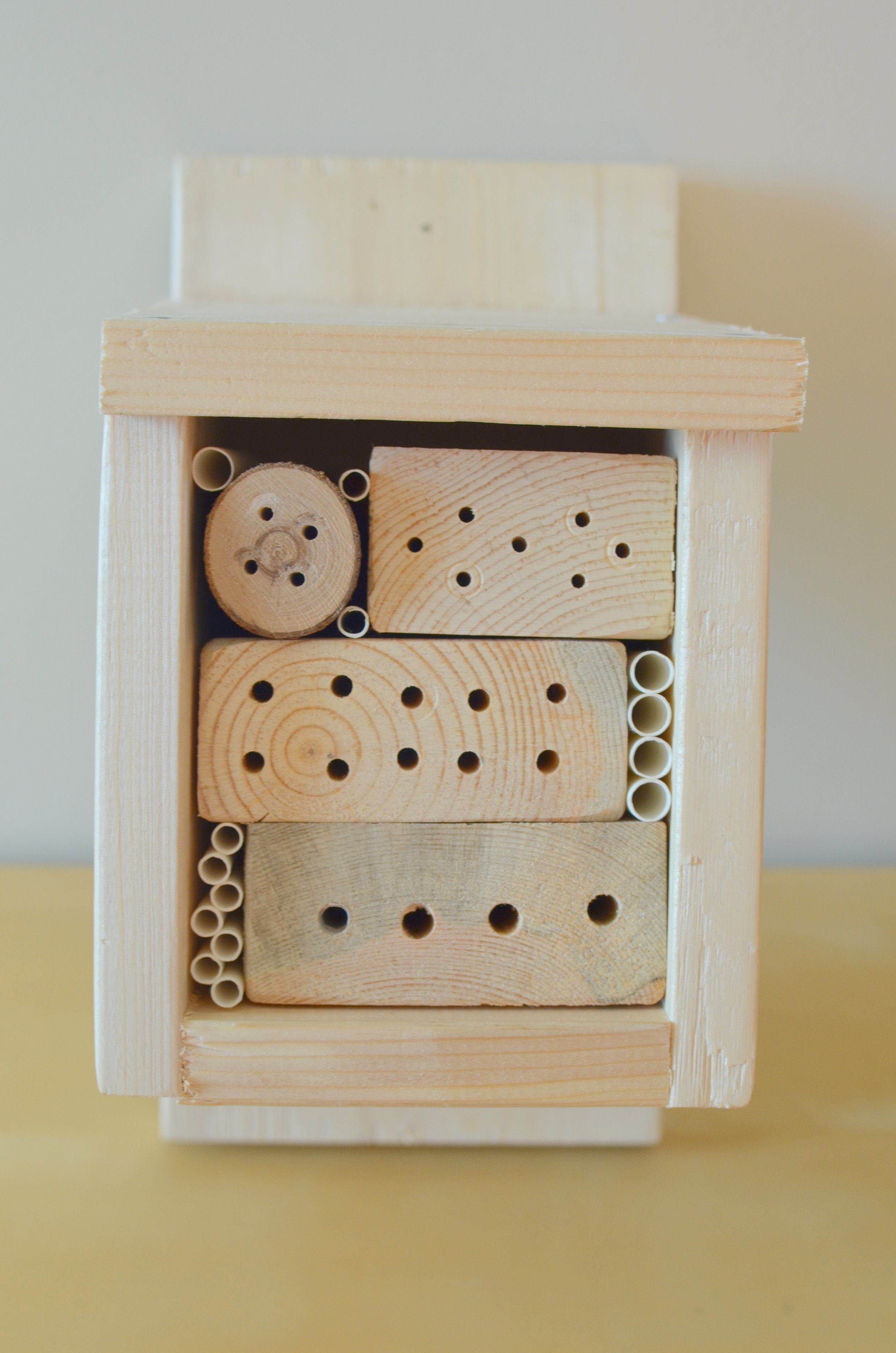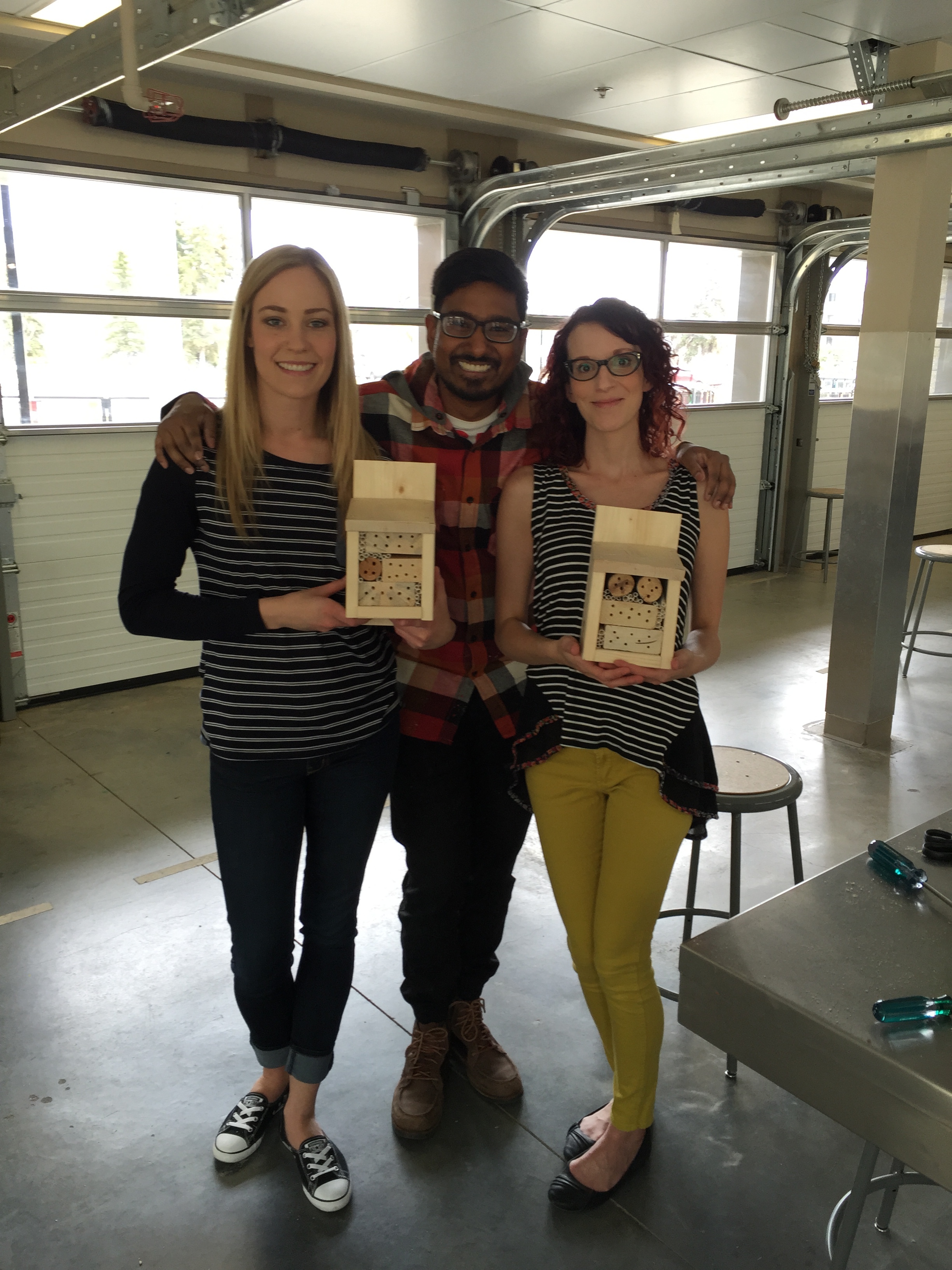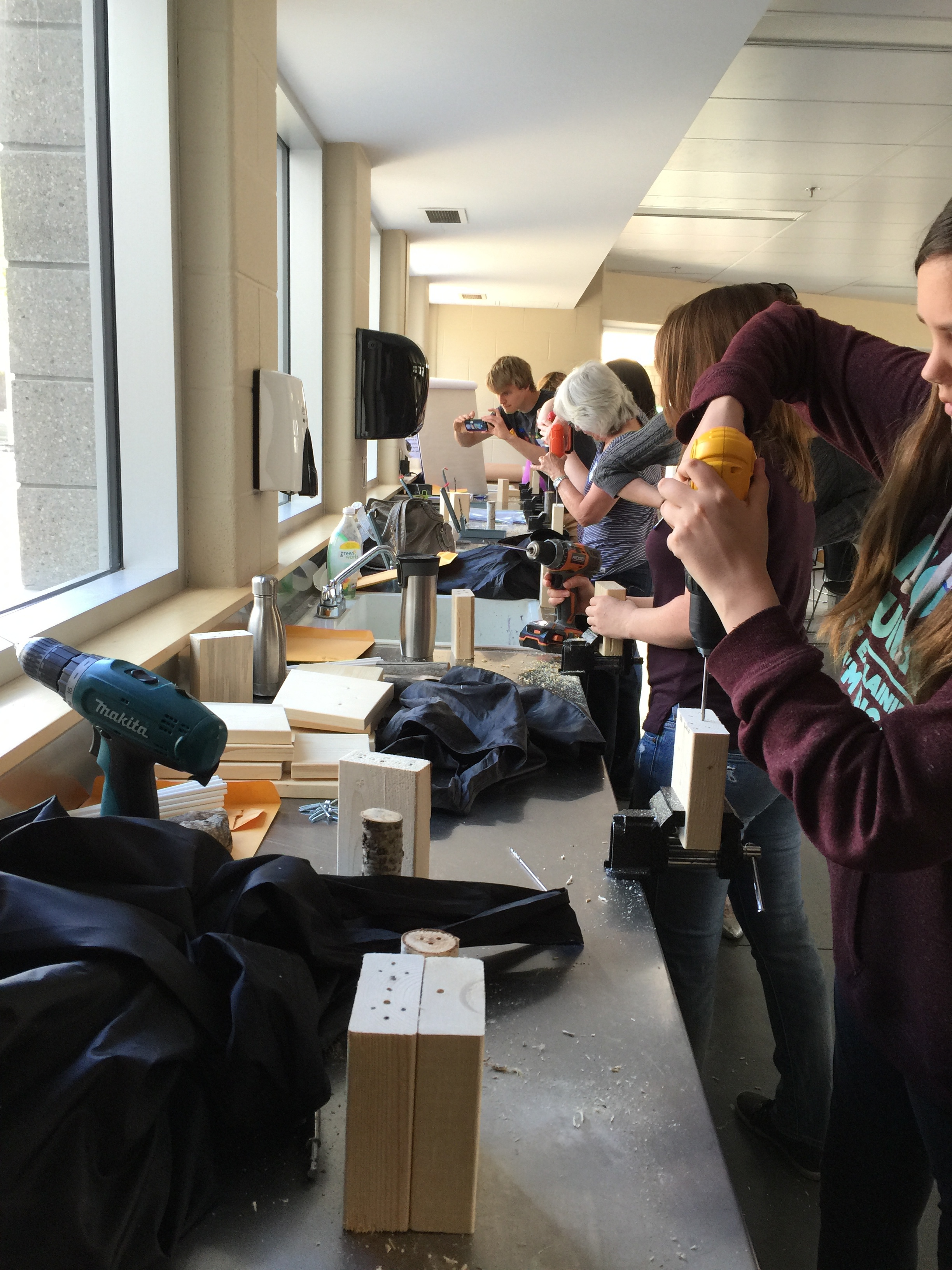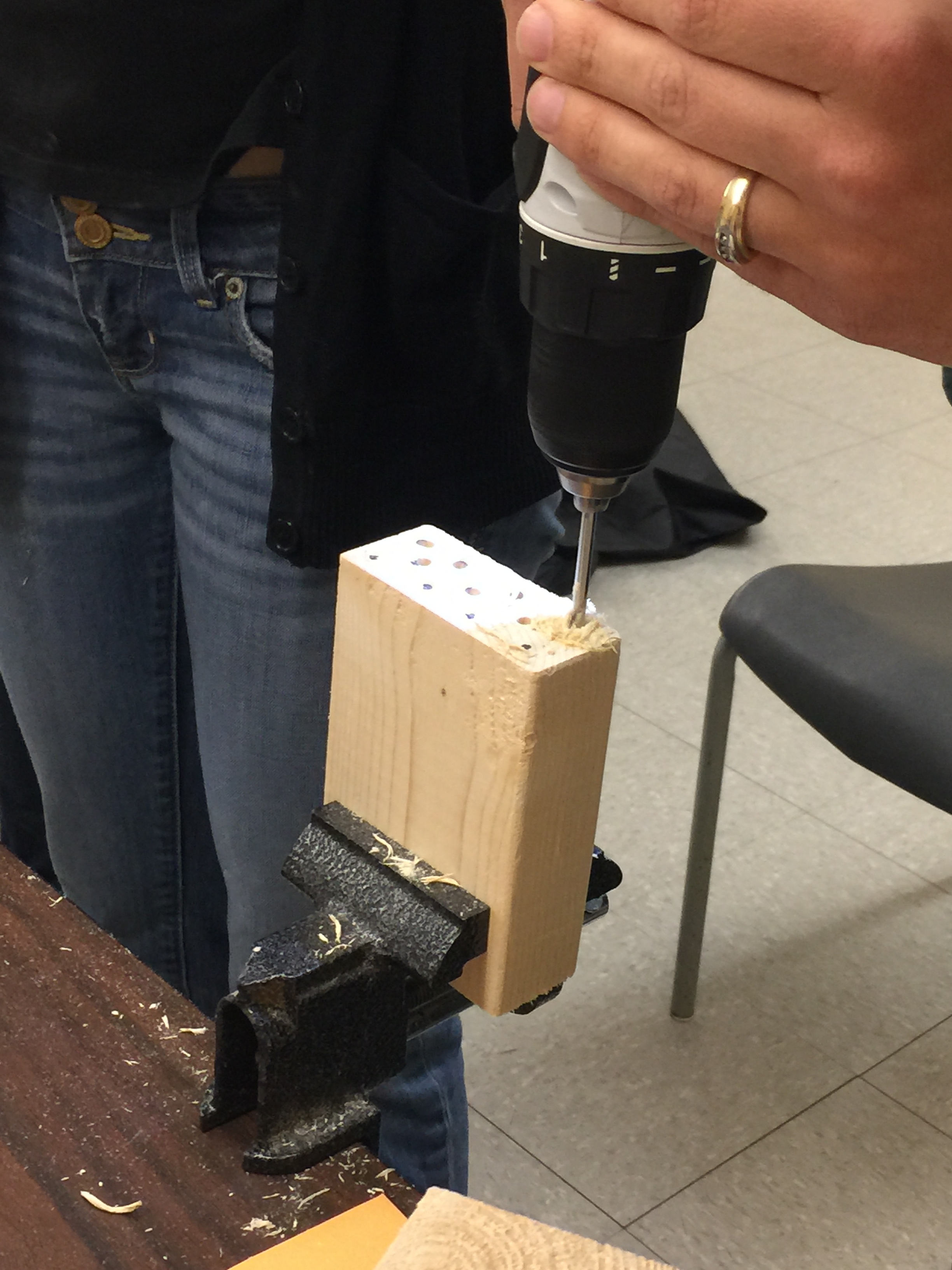Much of the food that you eat owes itself to pollinating animals. Pollinators include bats and birds, but the majority are insects butterflies, moths, flies, beetles, wasps, and especially bees! Alberta is home to over 300 species of bees, most of which are solitary bees. Solitary bees are not aggressive, unlike other types of social bees that swarm and live in colonies. Solitary bees are also very efficient pollinators!
Some flowering plants that produce our food are pollinated by wind or water, but about 3/4 of all the flowering plants in the world rely on insect pollinators to reproduce. However, pollinators are declining for a number of reasons, including: habitat loss, pesticide use, and climate change. Because there are fewer pollinators, food producing plants are pollinated less. We need pollinators like solitary bees to pollinate our plants, including our vegetable plots, flower gardens and agricultural crops.
The Edmonton and Area Land Trusts natural areas in the countryside around Edmonton are homes to pollinators for the surrounding agricultural lands. However, we can all do our part to help urban pollinators.
To help our urban bees, you can build a bee hotel! Bee hotels attract tunnel-nesting solitary bees and other solitary pollinators, which lay their eggs in the tunnels of the hotel.
In this workshop, you will create a bee hotel from a kit provided by the Edmonton and Area Land Trust. Participants must bring their own cordless drill (with extra battery if possible), and should be comfortable using it. All other tools and supplies will "bee" provided!
Thanks to MacEwan University Office of Sustainability for hosting this workshop.
